
by Cepadmin | Feb 12, 2024 | Actual, News
Career-oriented elective courses
Centre for Educational Programmes has developed career-oriented elective courses. To ensure successful implementation of comprehensive work on career guidance for upper secondary school students, subject teachers need to use professionally oriented materials in the educational process. Students can be interested in different types of professional activities, even those within one specialisation, therefore, the solution of this problem is closely related to the process of students building their individual educational paths.
Career-oriented elective courses “Mathematical methods of collecting and processing statistical data”, “Mobile application developer”, “Practical electrical engineering”, “Laboratory assistant for chemical analysis”, “Nutritionology”, “Tour Operating”, “Copywriting”, “Fundamentals of Graphic Design”, “Production Director”, “Fundamentals of Investment” – these are additional elective courses for students. They are included in the curriculum at the senior level of schooling. Elective courses are implemented within the school component of the curriculum and designed for a minimum number of students in groups (up to 12).
The role assigned to elective courses in the system of specialised learning determines the range of their functions and tasks.
Functions of career-oriented elective courses:
– study of new professions, description of necessary professional skills arising from the main problems of our time;
– extending and deepening core and specialised subject knowledge;
– practical training;
– development of professional skills;
– introducing to new trends and the stage of development of the sphere.
Tasks of career-oriented elective courses:
– to introduce additional content of the educational material, to extend and deepen specialised subject knowledge;
– to promote professional adaptation;
– to prepare for a future career;
– to increase the information and communication competence of students, as well as to stumulate their cognitive and creative activities.
Therefore, the content and focus of elective courses should be linked to a particular specialisation by modeling the educational situations and problems characteristic of it.
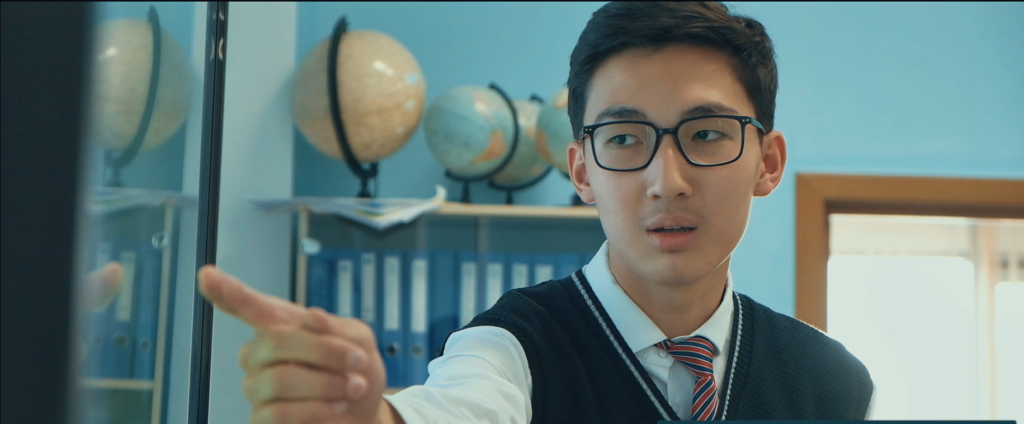
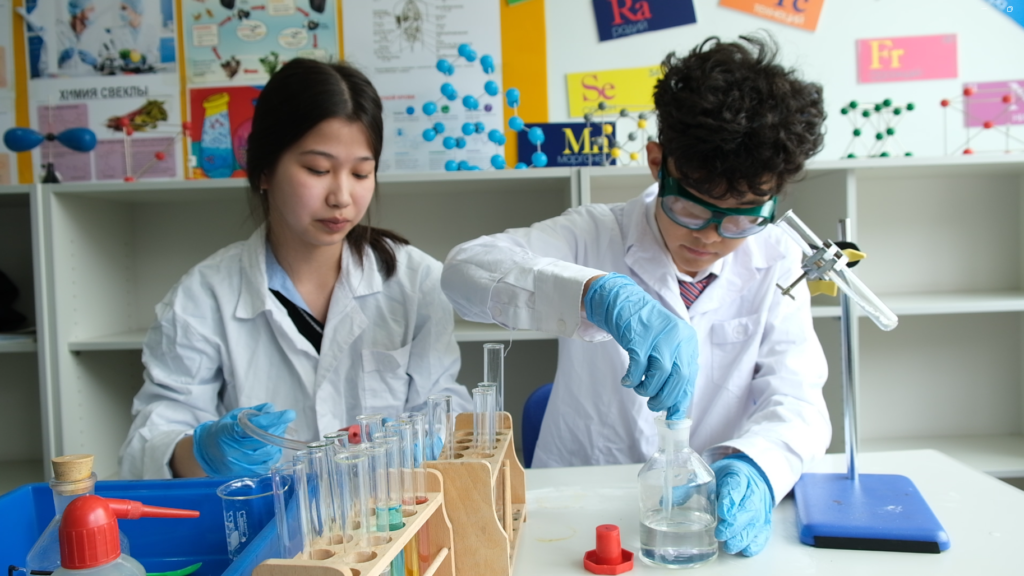
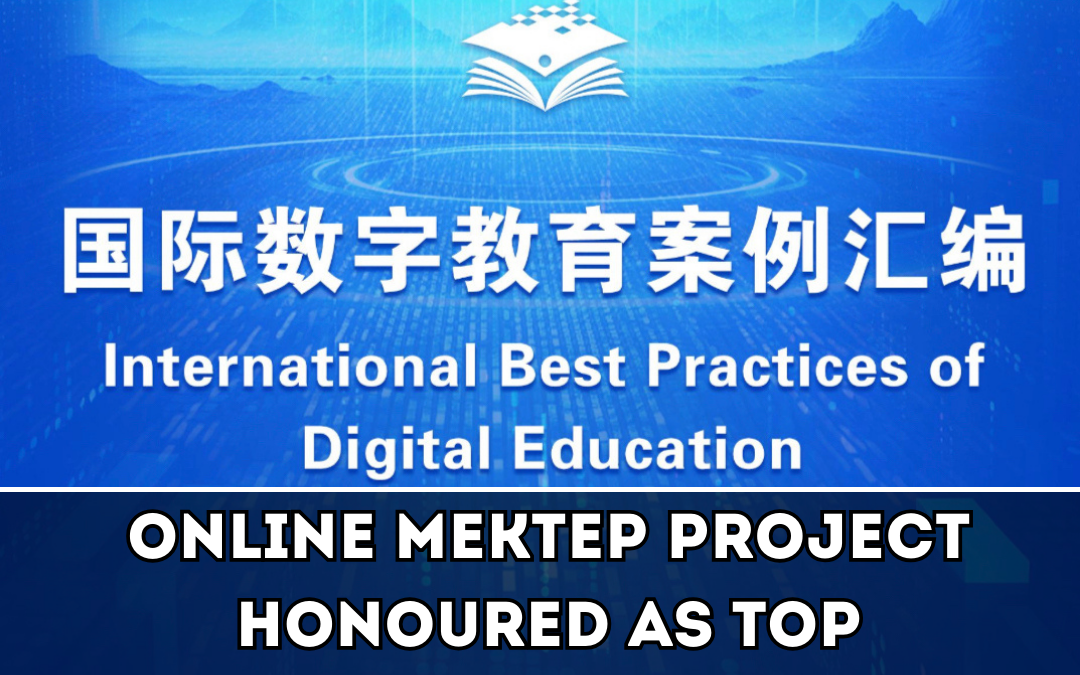
by Cepadmin | Feb 9, 2024 | Actual
Online Mektep project honoured as top project by UNESCO
The Online Mektep project has been recognised and honoured as part of the “International Best Practices of Digital Education” launched at the 2024 World Digital Education Conference.
The conference, themed “Digital Education: Application, Sharing and Innovation”, was jointly organised by the Ministry of Education of the People’s Republic of China, the Chinese National Commission for UNESCO and the Shanghai Municipal People’s Government. It was held in Shanghai, China, from 29 to 31 January 2024. The conference saw the launch of the UNESCO Wenhui Award. The joint project of Centre for Educational Programmes of Nazarbayev Intellectual Schools and Bilim Media Group was included in the list of TOP 8 International Best Practices of Digital Education worldwide in the category of Build Inclusive Digital Learning Systems for Strengthening Crisis Resilience.
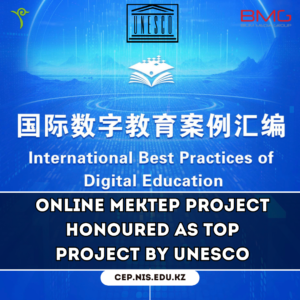
https://wdec.smartedu.cn/en/
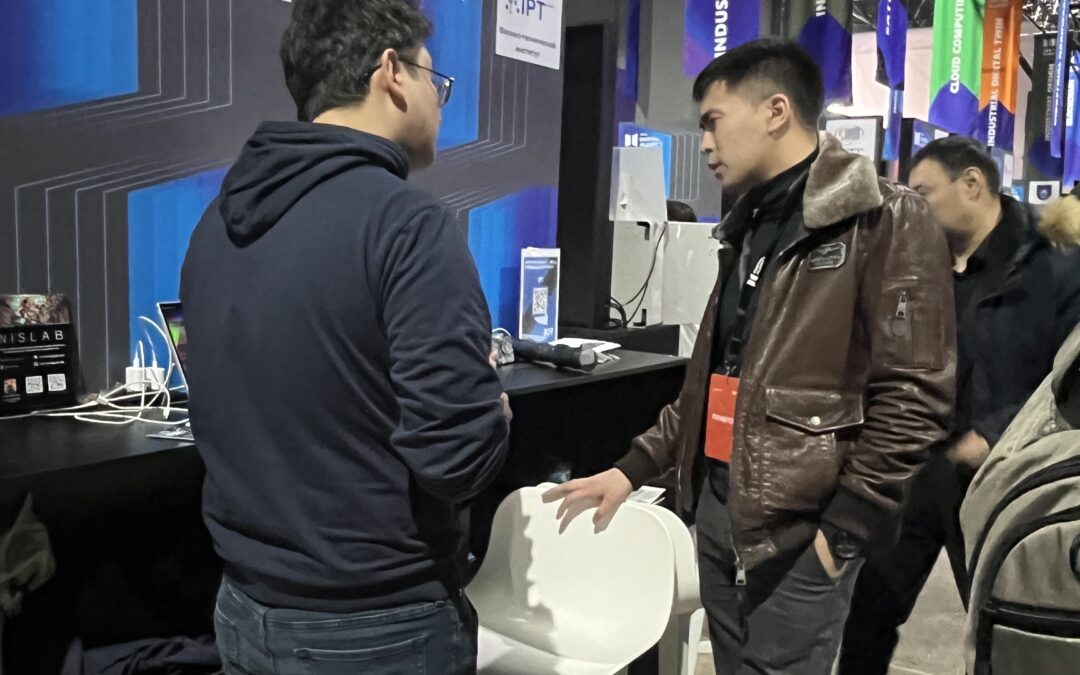
by Cepadmin | Feb 8, 2024 | Actual, News
International Digital Forum Digital Almaty 2024
From February 1st to 3rd, the International Digital Forum Digital Almaty was held, serving as a traditional platform for discussing the digital agenda, new strategies for digital transformation, and trends in digital technology. Participation in prestigious events like Digital Almaty can enhance the visibility of our NIS LAB project, attract potential users and investors, and strengthen the NIS brand’s position in the digital technology market.
DIGITAL ALMATY ENSURES:
∙ Rich business program featuring the latest cases from leading experts;
∙ Extensive exhibition of top companies showcasing innovations, technologies, and industries;
∙ Diverse cultural and entertainment program, from robotics championships to the largest startup battle in Kazakhstan.
At the International Forum Digital Almaty 2024, Minister of Digital Development, Innovation and Aerospace Industry of the Republic of Kazakhstan, Bagdat Musin, emphasized the interest in digital solutions from Kazakhstan by other countries, as evidenced by the participation of over 70 experts from abroad, including digitalization ministers from other states.
The exhibition also attracted attention, presenting projects from 230 IT companies, including NIS LAB. The “Centre for Educational Programmes” branch of Nazarbayev Intellectual schools AEO used a branded stand to present its NIS LAB and NIS Online products, which attracted interest from secondary schools and foreign investors.
We are confident that the results and agreements reached at this forum will have a positive impact on our future achievements and partnerships.





by Cepadmin | Dec 6, 2023 | News
Trainings held in Almaty on renewed subject programmes
within the educational programme of
Nazarbayev Intellectual Schools AEO “NIS-Programme”
Between August 2 and 4, 2023, specialists of the Centre for Educational Programmes (hereinafter referred to as the Centre) affiliated with Nazarbayev Intellectual Schools AEO conducted summer trainings on renewed subject programmes of the educational programme of Nazarbayev Intellectual Schools AEO “NIS-Programme”.
These trainings were held at the Nazarbayev Intellectual School of Physics and Mathematics in Almaty and attended by 220 managers of Methodological Associations. The training aimed at implementing renewed subject programmes, educating students, instilling values, developing key competencies which are relevant to the present day. They were given some methodological recommendations. In addition, considered effective methods of doing research projects, peculiarities of teaching STEM, communicative approach, problem-oriented learning, effective methods and techniques for developing mathematical, science, digital and media literacy of students.
On the last day the participants had a meeting with Anuar Zhangozin, Chair of the Board of Nazarbayev Intellectual Schools AEO, Zhanar Abdildina, Director of the Centre, and received answers to their additional questions.
The renewed subject programmes will be implemented in the 2023-2024 academic year starting from Grade 7.






2023 жылдың 2-4 тамызы аралығында «Назарбаев Зияткерлік мектептері» ДББҰ «Білім беру бағдарламалары орталығы» филиалының (бұдан әрі – Орталық) мамандары «Назарбаев Зияткерлік мектептері» ДББҰ-ның NIS-Programme білім беру бағдарламасы аясында жаңартылған оқу бағдарламалары бойынша жазғы оқыту тренингтерін өткізді.
Аталған тренингтер Алматы қ. физика-математика бағытындағы Назарбаев Зияткерлік мектебінде өтті. Оқыту тренингтерінде республикадағы Зияткерлік мектептердің барлық пәндері бойынша 220 әдістемелік бірлестік жетекшілері бас қосты. Тренинг мазмұны жаңартылған оқу бағдарламаларын іске асыру, білім беру және тәрбие ісін тұтас жүзеге асыру, оқушылар бойына құндылықтарды дарыту, қазіргі кездегі негізгі құзыреттерді қалыптастыру мәселелеріне бағытталып, әдістемелік ұсыныстар берілді. Сонымен қатар жобалау және зерттеу жұмыстарын ұйымдастырудың тиімді әдістері, STEM оқытудың ерекшеліктері, коммуникативтік тәсіл, проблемалық оқыту, оқушылардың оқу, математикалық, жаратылыстану, цифрлық және медиасауаттылығын қалыптастырудың тиімді әдіс-тәсілдері қарастырылды.
Тренингтің соңғы күні әдістемелік бірлестік жетекшілері «Назарбаев Зияткерлік мектептері» ДББҰ Басқарма төрағасы Әнуар Жанғозинмен және Орталық директоры Жанар Абдильдинамен кездесіп, өздерін толғандырған сұрақтарына жауап алды.
Жаңартылған оқу бағдарламалары 2023-2024 оқу жылында 7-сыныптан бастап ендірілетін болады.
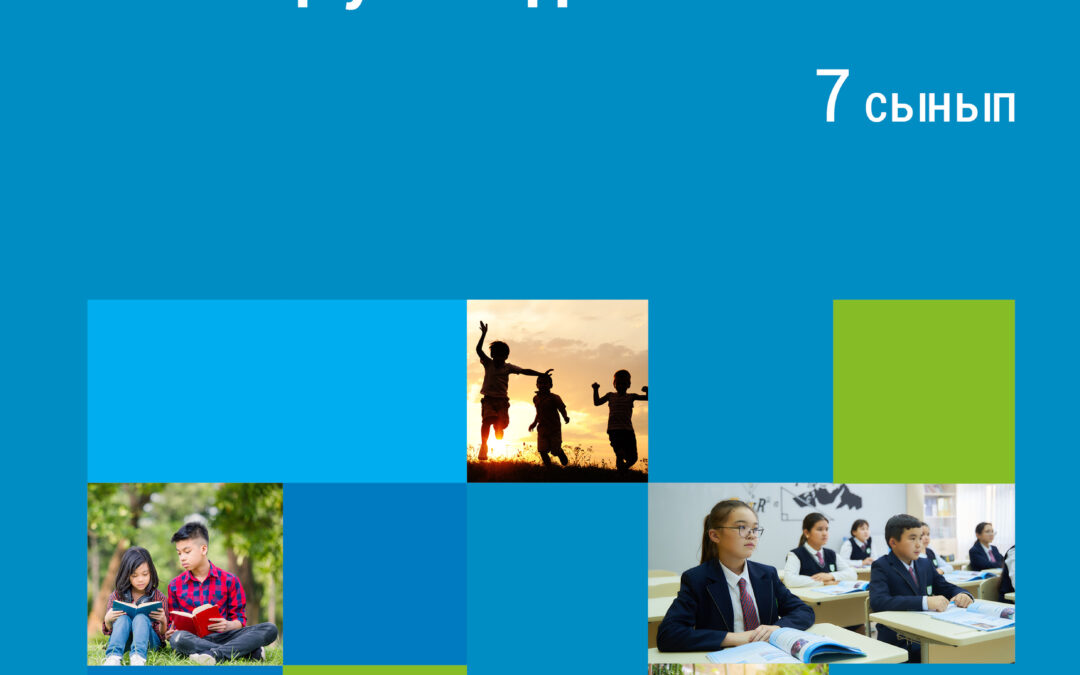
by Cepadmin | Oct 27, 2023 | Actual, Feeds, News
Well-being and Safety
Safety and well-being of the younger generation play an important role in the context of the developing world. They are the priorities of the development of modern society.
Centre for Educational Programmes has developed an elective course on Safety and Well-being for students of grades 7-10, aimed at acquiring the knowledge and skills that ensure safe living in the world and the social environment, creating a safe and comfortable living environment, shaping the values of a healthy and safe lifestyle, emotional and mental stability, mastering the rules of personal and collective safe behaviour.
The course aims to develop students’ personal competencies, develop problem-solving skills and adaptive behaviour of students, improve knowledge and practical skills of safe behaviour. Students update their knowledge about proper nutrition, regular physical activity and hygiene, the dangers of tobacco, alcohol and drugs, knowledge of how to maintain their emotional well-being and develop healthy relationships with other people. The course will help students develop skills of conscious behaviour to avoid situations that may pose a threat to their health and safety, develop a sense of responsibility for their own safety and the safety of others, improve their social skills and emotional intelligence skills. The course curriculum includes the principles of communication, the ability to listen and express own thoughts and emotions. This will help students to build healthy, harmonious relationships with others and effectively cope with conflicts. The course material contributes to the development of self-awareness and self-esteem of students. Methods of teaching include the use of practical examples and real-life cases so that students can see the application of theory in practice. This will help them better understand and evaluate real situations of safety and well-being.
The elective course programme is designed for 34 hours in each grade.
The programme consists of four strands.
- Health protection and healthy lifestyle
- Mental health and well-being
- Well-being in a social environment
- Personal safety
The themes in the course are based on the spiral model when students’ knowledge and skills are improved as they progress from grade to grade.

















